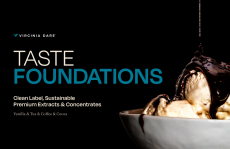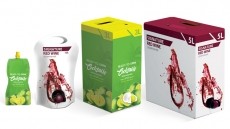Cadbury to cut CO2 emissions by 50 per cent
yesterday unveiled a programme to cut down on its use of energy,
packaging and water in response to climate change.
Regulatory and consumer pressure has been the impetus for programmes such as Cadbury's.
The company becomes one of the first major food and drink manufacturers to commit to taking action throughout its operations.
The company pledged a 50 per cent reduction of net absolute carbon emissions from its manufacturing sites by 2020.
The aim is to reduce not just the "relative" energy used in its global operations but also what it calls "absolute" carbon emissions.
An absolute cut commits the business to reduce not only the emissions per tonne but also overall output despite any growth.
This makes absolute targets more challenging, particularly for a sector such as manufacturing, Cadbury noted.
The company plans to achieve the goal either by either cutting down on its use of energy, packaging and water, by switching to alternative sources or, as a last resort, by off-setting its emissions.
The company also targets a 10 per cent reduction in packaging used per tonne of product and a 25 per cent cut in the more highly packaged seasonal and gift items.
Cadbury also said it will use more environmentally sustainable forms of packaging.
The company aims to have 60 per cent of its packaging made from biodegradable materials and all of its secondary packaging as recyclable.
All of what it labels "water scarce" sites will have reduction programmes in place, the company stated.
"In addition to making its own commitments, the company will be looking to forge alliances and positively influence others within its value chain to put climate change onto the agenda," Cadbury stated.
Employees will be encouraged to "green activism" within the company, by being given the authority to take action, press for change and "create a culture of environmental consciousness", Cadbury stated.
"Having launched its environmental commitments, Cadbury Schweppes hopes to unite the industry, joining forces with peers and partners throughout the supply chain, to reduce the carbon footprint of the food manufacturing sector," the company stated.
Todd Stitzer, Cadbury Schweppes' chief executive officer, said the company would work with its supply chain partners to reduce emissions.
He outlined a number of previous changes Cadbury had made to its operations in a bid to cut down on the company's environmental impact.
In 2005 Cadbury Schweppes switched from coal-fired boilers to natural gas boilers in Bournville, UK.
The project reduced the company's global emissions of greenhouse gasses by one per cent, he sated.
The company has also invested in new technologies, such as a combined heat and power plant in Nagoya, Japan.
In India, the company's Induri plant uses "bagasse" or sugar cane, a renewable fuel to provide steam for manufacturing.
Cadbury Schweppes is the world's largest confectionery company and has major regional beverages businesses in North America and Australia.
On 15 March 2007, Cadbury Schweppes announced that it intends to separate its confectionery and Americas beverages businesses.
It produces brands such as Cadbury, Schweppes, Halls, Trident, Dr Pepper, Snapple, Trebor, Dentyne, Bubblicious and Bassett and employs about 70,000 staff.
In the EU, a "cap-and-trade" emissions trading scheme is in effect for manufacturing sites such as Cadbury's.
The scheme, which took effect from January 2005, sets limits on each manufacturer's CO2 outputs.
Companies can then to buy and sell CO2 emissions rights according to need on specially constructed Internet sites.
Plants that emit more CO2 than their allocation need to buy allowances to cover the extra emissions.
Companies that emit less than their allocation are able to sell the allowances to companies that need them.













